
Everything you need to know
Symptoms of Allergic Rhinitis:


Allergic rhinitis can be either seasonal (hay fever) or perennial. Symptoms of hay fever only occur during a certain time of the year whereas symptoms of perennial allergic rhinitis can occur all any time of the year and can be triggered by allergens such as pet allergy, mites, and mould.
Types of Allergic Rhinitis
-
How Severe is My Allergic Rhinitis?
Does any of the following apply to you?
- Your symptoms are affecting your sleep quality.
- Your daily activities are affected due to your symptoms.
- Your performance at school or work is suffering due to the symptoms.
- The symptoms are a burden for you.
If you answered ‘yes’ to one or more of these questions, you may have allergic rhinitis that is classified as ‘moderate to severe.’ If you answered ‘no’ to all questions, your allergic rhinitis is considered ‘mild.’
Dymista Control is used to relieve the symptoms of moderate to severe hay fever symptoms, if the use of either an antihistamine nasal spray or corticosteroid nasal spray alone has not provided relief.
Dymista® Control nasal spray. For moderate to severe hay fever symptoms when intranasal antihistamines or corticosteroids are insufficient.Always read the label.
UK-DTC-2024-00003 February 2025












